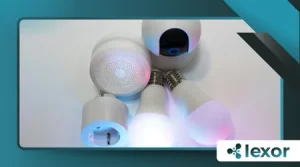The Best Smart Home Hubs Compared

With an overwhelming number of devices hitting the market, choosing the best smart home hubs compared is critical to ensuring seamless automation.
The smart home revolution is no longer a futuristic concept—it’s here, and it’s evolving faster than ever.
A high-quality hub acts as the brain of your smart home, integrating lights, locks, cameras, and climate control into one cohesive system.
Without it, you’re left with disconnected gadgets that require multiple apps, frustrating delays, and missed automation opportunities.
But how do you pick the right one in 2025?
This guide dives deep into the top contenders, their strengths, weaknesses, and real-world performance—helping you make an informed decision.
Why a Smart Home Hub is Essential in 2025
Gone are the days when smart homes were a luxury for early adopters. Today, they’re a necessity for efficiency, security, and energy savings.
A central hub eliminates the headache of managing multiple apps and unreliable Wi-Fi connections.
Instead of shouting commands at different devices, a well-integrated hub lets you control everything with a single voice prompt or tap.
For example, imagine saying, “Goodnight,” and your lights dim, doors lock, thermostat adjusts, and security cameras activate—all without lifting a finger.
That’s the power of a well-chosen smart home hub.
++How to Understand Cryptocurrency Market Trends
But not all hubs are created equal.
Some prioritize voice control, while others focus on local processing for faster response times.
Your choice depends on your ecosystem, technical expertise, and long-term smart home goals.

Key Features That Define the Best Smart Home Hubs
1. Compatibility: The Backbone of a Seamless System
The best hubs support a wide range of protocols—Wi-Fi, Zigbee, Z-Wave, Thread, and Matter.
Matter, the new universal smart home standard, ensures cross-brand compatibility, reducing reliance on a single manufacturer.
++What Is Home Automation and Is It Worth It?
For instance, a Matter-enabled hub like Samsung SmartThings lets Philips Hue bulbs, Yale locks, and Ecobee thermostats work together effortlessly.
Without broad compatibility, you risk buying devices that won’t communicate, leading to a fragmented smart home.
2. Local vs. Cloud Processing: Speed and Reliability
Cloud-dependent hubs, like early versions of Google Nest, can lag during internet outages.
Local processing hubs, such as Hubitat Elevation, execute commands instantly—ideal for security systems and real-time automations.
++Automating Your Morning Routine with Smart Tech
A 2024 Statista report found that 68% of users prefer hubs with offline functionality, emphasizing reliability over cloud convenience.
3. Voice Assistant Integration: Alexa, Google, or Siri?
Your preferred voice assistant may dictate your hub choice.
Alexa excels in third-party skills, Google Assistant understands context better, and Siri prioritizes privacy.
If you’re deep into Apple’s ecosystem, a HomePod Mini makes sense—but it won’t play nicely with Nest thermostats.
4. User Interface: Simplicity vs. Advanced Customization
Some hubs, like Apple Home, prioritize sleek, user-friendly interfaces.
Others, like Home Assistant, offer deep customization for tech enthusiasts but require coding knowledge.
Your comfort level with technology should guide this decision.
Top 5 Smart Home Hubs Compared for 2025
1. Amazon Echo (4th Gen) – The Ecosystem Champion
Amazon’s latest Echo doubles as a Zigbee hub, eliminating the need for extra bridges.
Read more: Top 5 things to look for in a smart home hub
Alexa’s vast library of skills allows for unique automations, like ordering groceries when your fridge sensor detects low milk.
However, Google and Apple device integration remains limited, which could frustrate mixed-ecosystem households.
2. Google Nest Hub Max – The AI-Driven Powerhouse
Google’s strength lies in its predictive AI, learning routines and adjusting devices before you even ask.
For example, it can lower blinds at sunset or start your robot vacuum when you leave for work.
Yet, its hardware compatibility is narrower than SmartThings, making it less ideal for diverse setups.
3. Apple HomePod Mini – The Privacy-First Hub
HomeKit’s end-to-end encryption ensures your data stays private—a major selling point in 2025’s data-conscious world.
With Siri’s improved natural language processing, complex commands like “Set the living room to movie mode” work flawlessly.
But Apple’s strict hardware requirements mean fewer third-party device options compared to competitors.
4. Samsung SmartThings Hub – The Future-Proof Choice
SmartThings supports Matter, Thread, and Zigbee, making it one of the most versatile hubs available.
Its open architecture means it works with nearly any smart device, from obscure brands to industry giants.
However, beginners might find its advanced settings overwhelming without proper guidance.
5. Hubitat Elevation – The Speed and Reliability King
Unlike cloud-dependent hubs, Hubitat processes everything locally, ensuring instant responses.
This is crucial for automations like unlocking doors when you arrive or triggering alarms during a break-in.
The trade-off? Its interface is less polished, catering more to tech-savvy users than casual consumers.
The Matter Protocol: Why It’s a Game-Changer in 2025
Matter’s widespread adoption has finally solved the biggest smart home headache—brand incompatibility.
Now, devices from different manufacturers communicate effortlessly, reducing reliance on proprietary ecosystems.
Hubs like SmartThings and Amazon Echo (with Matter support) ensure your setup remains flexible for future upgrades.
For example, a Matter-certified Yale lock can now work with Apple Home, Google Nest, and Alexa—something impossible just two years ago.
Frequently Asked Questions (FAQs)
Q: Do I still need a hub if I have a smart speaker?
A: Yes. While smart speakers control individual devices, a hub unifies them for advanced automations and offline functionality.
Q: Which hub is best for privacy?
A: Apple HomePod Mini, thanks to HomeKit’s encrypted local processing.
Q: Can I use multiple hubs together?
A: Sometimes, but it can lead to conflicts. Stick to one primary hub for stability.
Q: Will my old smart devices work with Matter?
A: Only if they receive a firmware update. Check manufacturer announcements.
Final Verdict: Which Smart Home Hub Should You Choose?
The best smart home hubs compared depend on your priorities:
- Alexa fans → Amazon Echo (4th Gen)
- Google households → Nest Hub Max
- Privacy-focused users → Apple HomePod Mini
- Tech enthusiasts → Samsung SmartThings
- Offline reliability seekers → Hubitat Elevation
Investing in the right hub today ensures your smart home remains cutting-edge for years.
For further reading, check:
Still unsure? Ask yourself: Will my current setup keep up with 2025s innovations? If not, it’s time to upgrade.
